 Today’s sweeping scientific and technological developments require a heightened degree of attention from us as individuals as well as in our family lives, at school and later, in adulthood, at the workplace. Since it is increasingly difficult to find our way in the complex and rapidly changing world of diverse technologies, I gave a series of lectures on twenty-first-century science and technologies at different fora.
Today’s sweeping scientific and technological developments require a heightened degree of attention from us as individuals as well as in our family lives, at school and later, in adulthood, at the workplace. Since it is increasingly difficult to find our way in the complex and rapidly changing world of diverse technologies, I gave a series of lectures on twenty-first-century science and technologies at different fora.
This book is an expanded version, complete with examples, of those lectures. It mainly focuses on major trends, which — besides the volume being limited in length — does not allow me to present a detailed professional discussion, except when it is indispensable for the sake of understanding. Connections between different fields justify the reoccurrence of some sub-themes in several chapters. Compared to other issues, nanotechnologies, which are gaining importance due to the emerging trend of miniaturization, are discussed in somewhat more detail, including their optical aspects, culminating primarily in plasmonics. On the other hand, within the range of the smallest scales, quantum mechanics and its impact on technologies are highlighted, since the quantum world prevails mainly within this size range. For this reason and also because of the “oddities” of quantum mechanics — that is, its phenomena which are utterly different from our everyday experiences — I am compelled to devote a more extensive discussion to quantum mechanics since quantum mechanics has a great effect on biological as well as social processes and technological ones alike.
Like the “old” ones, new technologies are also linked to materials, thus materials technologies play a key role in almost all areas, which also applies to future technologies and their foundation. I would like to invite my readers to enjoy a host of intellectual experiences over the course of this voyage that connects today and tomorrow.
Norbert Kroó
physicist
Dennis Gabor, the Nobel Prize-winning Hungarian engineer-physicist and inventor of holography, redefined our approach to predicting the future with his book published in 1963 entitled Inventing the Future. The staccato and imperative mood of its title in Hungarian (Találjuk fel a jövőt! – Let’s invent the future!) was preferred by Gabor, because it expressed what he aimed to do with the right amount of urgency: “It was more than a title, it guided my thoughts in the right direction.”
This momentum was carried forward by John Brockman’s paper published in 1991 dedicated to the third culture and then by his collection of reports published in 2000, in which he urged that scientists and empirical thinkers should offer a key to a better understanding of our world through the in-depth explanation of their findings to the public.
Now, in the third decade of the third millennium, Professor Norbert Kroó, former President of the European Physical Society, paints an exciting vision of the future, guiding us through recent discoveries and inventions in his enjoyable style. From the optics of the world of particles through nano- and biotechnology to the kaleidoscope of pioneering results in quantum mechanics, this journey provides us with an insight into the possible worlds emerging from today’s scientific and technological advancements.
Heaven or Hell: this volume places a special emphasis on the moral aspect as well as the opportunities and risks involved in scientific research and economic development, thereby continuing the sense of responsibility laid down by Dennis Gabor, the author of its illustrious predecessor. It is common knowledge that creative foresight is a necessary quality of the true innovative spirit. Therefore, I recommend following this call to action inviting us to become active participants in our future, embedded in this exceptional physical discussion.
Miklós Bendzsel PhD
President of the Hungarian Academy of Engineering & Member of the EASA
172 pages
Price: 3.900 HUF
Discounted Price until October 31st: 3.500 HUF
ISBN: 978-615-5742-38-5
Table of Contents
Order from the Publisher: click on this LINK. Postage equivalent to the sum of current postage rate is to be paid by the customer.
If you would like to order online (ProsperoD), the book is also available here. (The website is in Hungarian only.)
 Today’s sweeping scientific and technological developments require a heightened degree of attention from us as individuals as well as in our family lives, at school and later, in adulthood, at the workplace. Since it is increasingly difficult to find our way in the complex and rapidly changing world of diverse technologies, I gave a series of lectures on twenty-first-century science and technologies at different fora.
Today’s sweeping scientific and technological developments require a heightened degree of attention from us as individuals as well as in our family lives, at school and later, in adulthood, at the workplace. Since it is increasingly difficult to find our way in the complex and rapidly changing world of diverse technologies, I gave a series of lectures on twenty-first-century science and technologies at different fora.